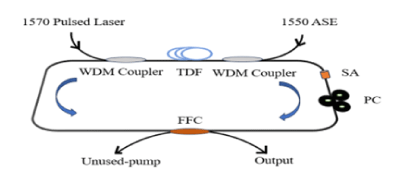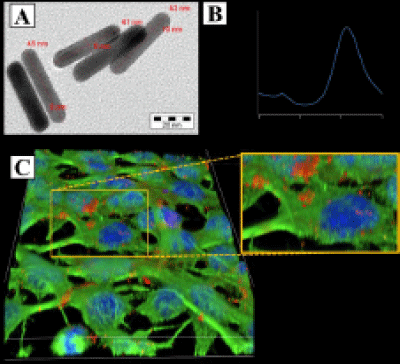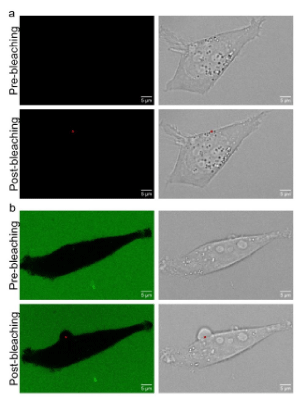Nanopartz Customer Spotlight
A highlight of a few of our thousands of publications
March 2025 Scientists from the Lakehead University have demonstrated the use of Nanopartz Gold Nanorods as a saturable absorber in a q-switched and mode locked fiber laser. This study explores the development of a tunable passively Q-switched and mode-locked fiber laser operating in the 1.9 μm region, achieved using a novel saturable absorber (SA) composed of gold nanorods (GNRs) embedded in polyvinyl alcohol (PVA). This wavelength region is particularly important for applications in medical diagnostics, environmental sensing, and LIDAR systems.
|
|
January 2024 Scientists Bianchi, L., et al. from the Dept of Molecular Biochemistry Istituto di Ricerchi Politechnico di Milano Italy, used Nanopartz Gold Nanorods for Photothermal Therapy (PTT) and their real-time the thermal effects on cells upon in vitro AuNRs-mediated PTT exploiting high-performance thermographic imaging. Multiple parameters, such as the temperature evolution, maximum temperature attained during laser exposures, normalized temperature, effective thermal enhancement (TE) and heating efficiency (HE) were derived through the analysis of the thermographic images. The cell viability values following exposure were used to evaluate the cells' biological response and compared with the results of the thermal analysis.
|
June 2024 Towards an Innate Cell-Environment Nanothermometer Scientists Sebastian Thompson, et al. from the Madrid Institute for Advanced Studies in Nanoscience, used Nanopartz Gold Nanorods the study of the synthesis, performance, and application of intracellular nanothermometers. This opens a whole new field in leveraging the extracellular localization of these nanothermometers, we demonstrate (1) the enhancement of their temperature sensitivity by combining them with gold nanorods, and (2) their capability to generate damage and disrupt the plasma membrane, thus opening the door to their use as photodynamic therapy agents. We firmly believe that these advancements represent not only a broadening of the applications of nanothermometry but also a pioneering step in showcasing the ability of nanothermometers to induce cell death.
|
August 2023 Quantum Photonics on a Tapered Optical Fiber For the first time, Scientist Ji Won Ha from Tokyo Japan used tapered optical fiber with subwavelength diameter waist, an optical nanofiber, providing a unique and all-fiber platform for manipulating atoms and photons. They demonstrated a polarized fiber-in-line quantum light source using a hybrid system of a single Nanopartz gold nanorod and single quantum dot deposited on a nanofiber.
|
December 2023 Transfer Printing of Ordered Plasmonic Nanoparticles Scientists from the the Dept of Biological Engineering at Utah State University have demonstrated for the first time, a high yield across a large area, an optical surface lattice resonance on glass substrates.
|
December 2020 For the first time, scientists from the University of Michigan have developed an imaging technique that can visualize newly developed blood vessels in the back of the eye, named choroidal neovascularization (CNV).
|
February 2021 Control of Light Transmission in a Plasmonic Liquid Metacrystal Scientists from the Institut Jean Lamour (CNRS - Université de Lorraine) experimentally demonstrated the control of light transmission through a slab of plasmonic liquid metacrystal by an external electric field.
|
July 2020 Electrically-Driven Yagi-Uda Antennas for Light For the first time, physicists from the University of Würzburg have successfully converted electrical signals into photons and radiated them in specific directions using a low-footprint optical antenna that is only 800 nanometers in size. At the heart of this structure is a single CTAB-coated gold nanoparticle from Nanopartz.
|
September 2020 Gold Nanoparticle Mediated Multi-Modal CT Imaging of Hsp70 Membrane-Positive Tumors For the first time, scientists from the Technical University of Munich have successfully utilized membrane-Hsp70 functionalized Gold-Nanoparticles for tumor-specific spectral CT imaging in preclinical settings. As the central element of this study, PEG-amine-coated gold nanoparticles from Nanopartz were used, which were further functionalized with anti-membrane Hsp70 antibodies, rendering them highly tumor-specific for in vivo applications.
|









